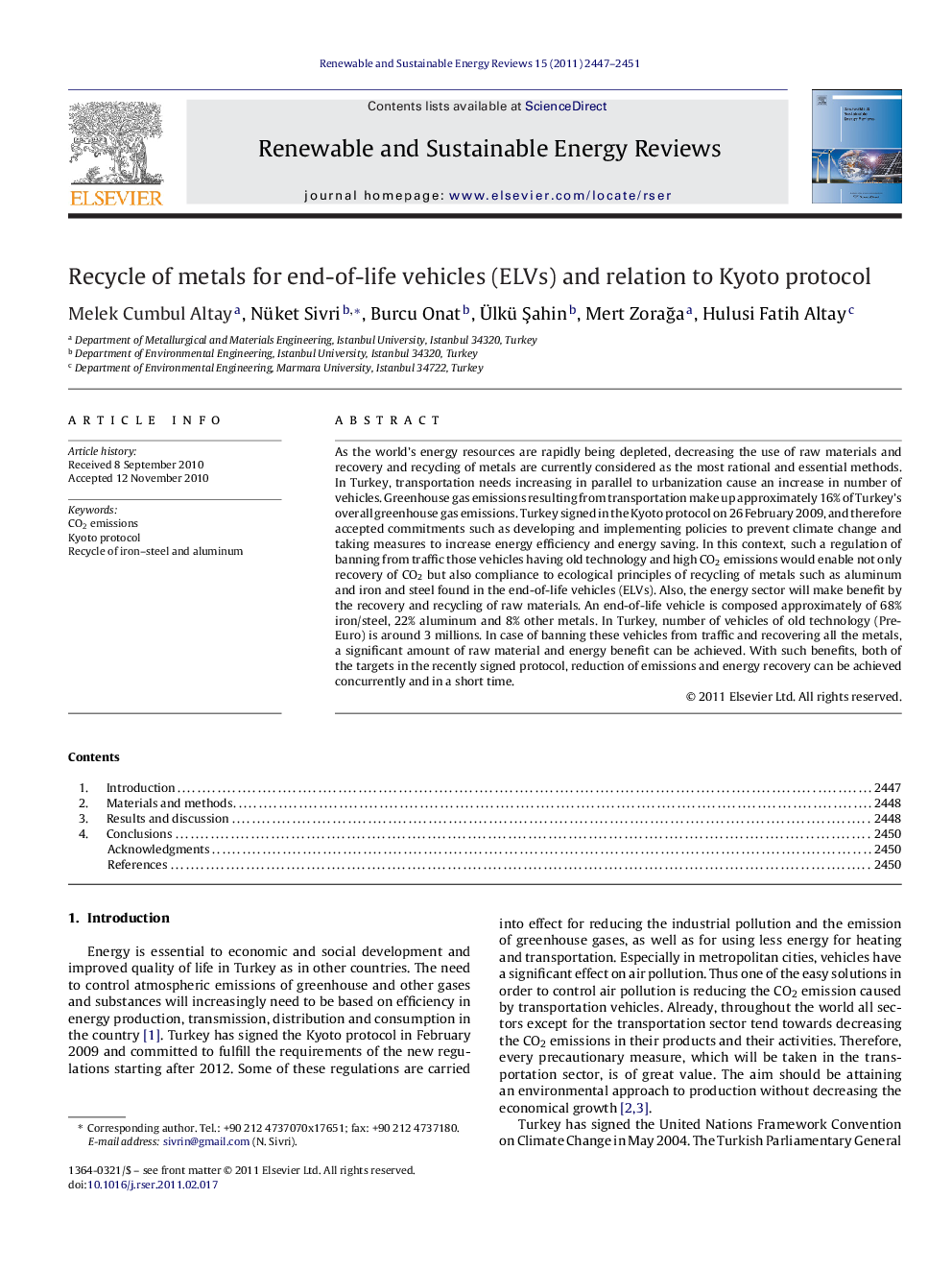| Article ID | Journal | Published Year | Pages | File Type |
|---|---|---|---|---|
| 1751214 | Renewable and Sustainable Energy Reviews | 2011 | 5 Pages |
As the world's energy resources are rapidly being depleted, decreasing the use of raw materials and recovery and recycling of metals are currently considered as the most rational and essential methods. In Turkey, transportation needs increasing in parallel to urbanization cause an increase in number of vehicles. Greenhouse gas emissions resulting from transportation make up approximately 16% of Turkey's overall greenhouse gas emissions. Turkey signed in the Kyoto protocol on 26 February 2009, and therefore accepted commitments such as developing and implementing policies to prevent climate change and taking measures to increase energy efficiency and energy saving. In this context, such a regulation of banning from traffic those vehicles having old technology and high CO2 emissions would enable not only recovery of CO2 but also compliance to ecological principles of recycling of metals such as aluminum and iron and steel found in the end-of-life vehicles (ELVs). Also, the energy sector will make benefit by the recovery and recycling of raw materials. An end-of-life vehicle is composed approximately of 68% iron/steel, 22% aluminum and 8% other metals. In Turkey, number of vehicles of old technology (Pre-Euro) is around 3 millions. In case of banning these vehicles from traffic and recovering all the metals, a significant amount of raw material and energy benefit can be achieved. With such benefits, both of the targets in the recently signed protocol, reduction of emissions and energy recovery can be achieved concurrently and in a short time.
